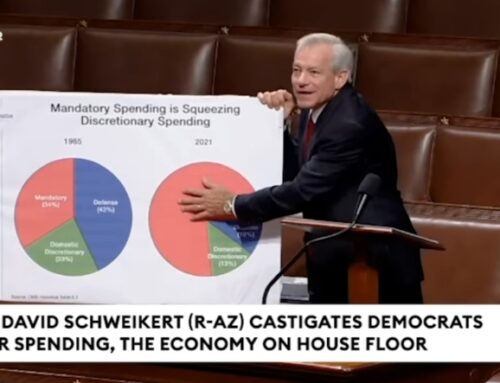The last not quite two years have been exciting. The Tea Party movement has grown from protests and rallies and inundating Congress with phone calls, e-mails, and visits about pending legislation, to getting real fiscal conservatives elected to Congress. We brought the foundational principles of Constitutionality and fiscal discipline and the issue of mounting debt to the forefront of our national political conversation.
In terms of concrete achievements, we have a mixed record. We were effective in delaying, but not defeating, unconstitutional and fiscally irresponsible congressional legislation such as Obamacare and stimulus spending. On the other hand, we helped to elect and reelect many Tea Party supporters and members to both federal and state levels.
Those we helped elect to the House of Representatives have not disappointed in their first working week. They passed the bill to repeal Obamacare, which fulfills a specific promise. Hopefully, the debate in the Senate will reveal many of Obamacare’s many flaws and will build further public support against it, highlighting the fact that President Obama and the Senate Democrats are not concerned with either the Constitution or the will of the American people.
Equally important, fiscal conservatives introduced in both the Senate and the House legislation to cut specific funding for specific programs to the tune of $2.5 trillion over the next ten years. Unconstitutional spending to support the National Endowment of the Arts, the National Endowment of the Humanities, Planned Parenthood, the Public Broadcasting Corporation, the Mohair industry, the USDA sugar subsidy program, and many other wastes of taxpayer money would be eliminated or drastically reduced. The entire list makes pleasant reading.
This legislation sends two messages. First, those we helped elect are serious enough about reducing federal spending to take specific steps to make it happen. They are not beholden to this or that special interest and are not interested in buying them off or being bought off. Second, various people and industries are going to have to get along without federal finances. We will no longer fund them.
Assuming victory in this contest, this is only the first step in bringing fiscal discipline and responsibility to Washington. While $2.5 trillion is a lot of money, according to the Congressional Budget Office it represents only six percent of the nearly $43 trillion of projected spending for the next ten years and not quite half of the projected deficit. Clearly, we need further cuts.
The real struggle will be over entitlements. If we don’t reform, and eventually eliminate, Social Security, Medicare, and Medicaid, our cutting this or that percentage of discretionary spending will be meaningless. We’ll just go into financial ruin a little more slowly.
Our aging population dramatically increases our entitlement spending. Social Security is projected to cost $9.259 trillion over the next ten years, while Medicare outlays will total $6.374 trillion. In addition, Medicaid will cost $3.902 trillion, and other entitlement spending will total $4.919 trillion and, just for fun, the interest on our increasing debt will total $6.373 trillion.
Our strategy to make the necessary cuts to federal spending that will actually eliminate the deficit and begin paying off the national debt needs to include at least these two elements. We need to stay in touch with our representatives and senators to let them know that we are not going anywhere and that we expect real long-term fiscal responsibility. Also, we need to continue to educate and persuade our fellow citizens that we cannot afford to continue as we have done, that our entitlements are not sustainable, and that we must learn to live independently of government support.





